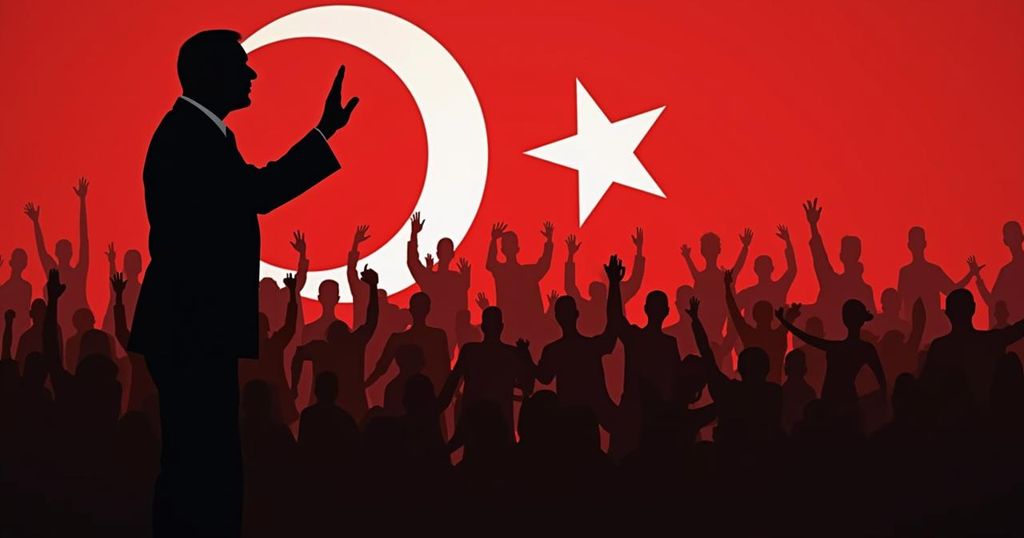Tunisia’s Autocratic Leader Set to Secure Election Victory with No Genuine Competition
President Kais Saied appears set to win the upcoming presidential election in Tunisia, with significant disillusionment among the populace regarding the election process. Saied’s main opponent is imprisoned, and numerous challengers are barred from the race. This consolidation of power raises concerns about the regression of democratic principles in Tunisia, a country once viewed as a hopeful success story of the Arab Spring.
Tunisia’s President Kais Saied is on the brink of securing an uncontested win in the upcoming presidential election, leaving many citizens feeling disillusioned with the political process. Despite the significant historical context of Tunisia as the birthplace of the Arab Spring, which promised democratic reforms and better governance, the current landscape reflects a stark regression toward autocracy. The absence of candidate posters, public debates, and noticeable campaign activity indicates an overwhelming lack of confidence among the populace regarding the electoral proceedings. Furthermore, President Saied’s main opponent is currently imprisoned on what many view as fabricated charges, contributing to an environment where opposition to the regime is systematically silenced. With at least eight other potential candidates either incarcerated or restricted, as well as many disqualified from participating in the election, the prospects for a competitive electoral process appear grim. This consolidation of power and oppression of dissent have fostered a sense of inevitability regarding Saied’s victory, prompting critiques of his approach to governance. A local civic watchdog representative, Souhaib Fercheche, articulated this sentiment, highlighting the lengths to which Saied will go to maintain his authority by fostering division and prosecuting dissenters. The narrative of disappointment surrounding the electoral process reflects a broader sense of betrayal among Tunisians, who initially sought hope for democratic accountability during the 2011 revolution. As the country prepares for the election, the contrasts between Saied’s rule and the aspirations of the Arab Spring continue to resonate, underscoring a fundamental crisis of legitimacy in Tunisia’s governing systems.
Tunisia has a complex history, particularly as it relates to the Arab Spring, which began in December 2010 and resulted in the ousting of longtime dictator Zine El-Abidine Ben Ali. This pivotal moment was hoped to usher in a new era of democratic governance and social reform in the region. However, the transition to democracy in Tunisia has been fraught with challenges. The country has faced economic difficulties and a fragmented political landscape that has led to public disillusionment with democratic institutions. In recent years, the political climate has further deteriorated under President Kais Saied, who has increasingly centralized authority and curbed the freedoms that were hard-won during the revolution. The current election process, which appears predetermined in favor of Saied, points to a significant shift away from democratic principles.
In conclusion, Tunisia’s imminent presidential election starkly illustrates the challenges facing a nation once celebrated for its democratic transition. The oppressive tactics employed by President Kais Saied, including the incarceration of opponents and the invalidation of candidates, have rendered the electoral process devoid of genuine competition or choice. This situation not only reflects a failure to uphold the aspirations of the Arab Spring but also highlights the urgent need for a reevaluation of Tunisia’s political trajectory. The sentiments expressed by civic watchdogs and the populace underscore a growing frustration with the prospects of genuine democracy.
Original Source: www.nytimes.com




Post Comment